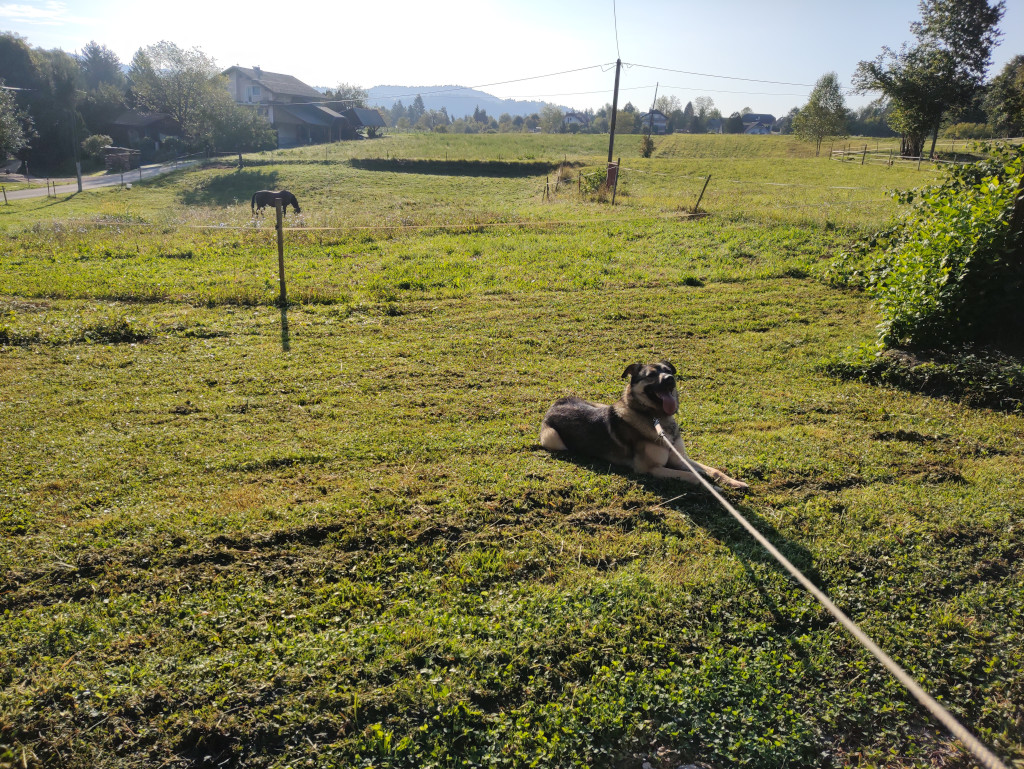Hello,
A long time ago I was working on a project involving artificial intelligence. Not… chatbots or statistical analysis farms, but real strong AI, capable of the same kind of mental process as humans. Even though I never got to the coding part: I wanted to make it efficient and I lack the necessary mathematical knowledge, to properly code the polydimensional datapoint matrix, that was the core part of it. Also I suppose I got hung up on how exactly the specifics of it should be, because conversation helps me think and I couldn’t find anyone equally interested in the topic as me, to talk it over with them. I have this issue with many things.

Anyway, while studying the necessary components for this AI, while trying to understand things regarding the aforementioned dilemmas… I learned many interesting things about actual natural intelligence. It turns out that once you understand how datapoint matrixes store true understanding, you kind of understand how neural networks do it as well in biological organisms. You learn many funky things that you wouldn’t expect a computer person to understand: Such as how love is essential to form the attachments necessary, to have a reason to learn about the world, which later in life leads to the kind of abstract understanding we associate with intelligence (turns out the bible was right about this). Or as is relevant to this blog entry, how important getting bored is to the learning process.
Ever since I stopped actively working on my AI concept, I’ve grown increasingly worried that everything that I’ve learned will go to waste. As said I don’t have anyone to talk to about it and so if I never make copies of my ideas, they will be lost forever once I lose them. And that is only a question of time. So… consider this blog as a kind of backup copy of one of these ideas. I sincerely hope someone will read this and actually understand it…
 So I was walking my dog earlier today and from a distance I could watch my neighbors struggle to raise their son to a hard-working standard they deemed appropriate. Namely they tried to get him to mow the lawn. The son helped enthusiastically at first but soon got bored and the parents found themselves having to finish the job themselves. I wondered at that point whether they considered this trait of children to grow bored with things quickly as the kind of crucial element of their son’s ability to learn as I do, or perhaps simply an irritating issue to overcome.
So I was walking my dog earlier today and from a distance I could watch my neighbors struggle to raise their son to a hard-working standard they deemed appropriate. Namely they tried to get him to mow the lawn. The son helped enthusiastically at first but soon got bored and the parents found themselves having to finish the job themselves. I wondered at that point whether they considered this trait of children to grow bored with things quickly as the kind of crucial element of their son’s ability to learn as I do, or perhaps simply an irritating issue to overcome.
You see, neural nets store understanding by saving snapshots of situations, that they are able to reproduce. However the useful value of that understanding, is being able to apply it in a problem-solving situation. To problem-solve, the neural net maps the current state and desired outcome into a kind of virtual image, then it traces the snapshots stored within it, until it reaches this conclusion. That way, from past experience, it knows the steps to take to resolve the issue it is dealing with. The ability of abstraction simply comes naturally from the fact that these snapshots are inaccurate, or are located beyond hardwired circuits that can do away with the irrelevant details.
 The key for this type of system to work, is obviously that the past experiences must actually contain the necessary steps to reach a solution. Therefore it is key for our intelligent being of choice, to build as many different experiences in life, before it is in a position when it needs to use them. However the way intelligent beings build experience is by personal experience (I feel like when you actually understand this stuff, you just find yourself talking in the most obvious circles, and you wonder how come you didn’t understand this before). And therefore, should our intelligent being of choice spend its entire childhood in a room, being fascinated by one single thing, it would never build the necessary experience to problem-solve effectively in life.
The key for this type of system to work, is obviously that the past experiences must actually contain the necessary steps to reach a solution. Therefore it is key for our intelligent being of choice, to build as many different experiences in life, before it is in a position when it needs to use them. However the way intelligent beings build experience is by personal experience (I feel like when you actually understand this stuff, you just find yourself talking in the most obvious circles, and you wonder how come you didn’t understand this before). And therefore, should our intelligent being of choice spend its entire childhood in a room, being fascinated by one single thing, it would never build the necessary experience to problem-solve effectively in life.
This is why humans have a natural instinct that senses when one has gained sufficient experience with one particular thing, and causes enough discomfort in this situation for the human in question to seek a new environment, capable of offering new experiences. This ensures a varied base of experience, which allows us to problem-solve relatively new and unforeseen situations with ease. This instinct is called boredom.
 I other words, our ability to get bored is extremely important and serves a useful function in our lives when growing up and beyond. Children datamine the things they play with for relevant information and when they get bored this is when they have extracted all that they can from that task in their particular stage of development. Therefore, to give your children the best chances in life by increasing their ability to intelligently problem-solve the challenges they face in life, you should go with the flow of their boredom and give them lots of stimulating experiences and not force them to do chores or homework which is boring (there is no rule that all experiences must be fun, though).
I other words, our ability to get bored is extremely important and serves a useful function in our lives when growing up and beyond. Children datamine the things they play with for relevant information and when they get bored this is when they have extracted all that they can from that task in their particular stage of development. Therefore, to give your children the best chances in life by increasing their ability to intelligently problem-solve the challenges they face in life, you should go with the flow of their boredom and give them lots of stimulating experiences and not force them to do chores or homework which is boring (there is no rule that all experiences must be fun, though).
LP,
Jure